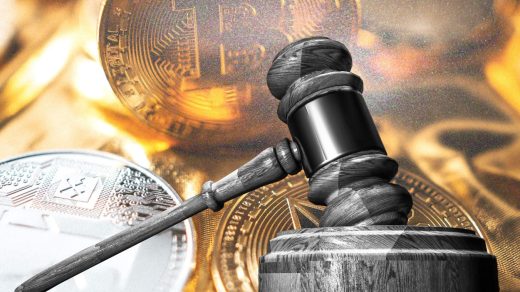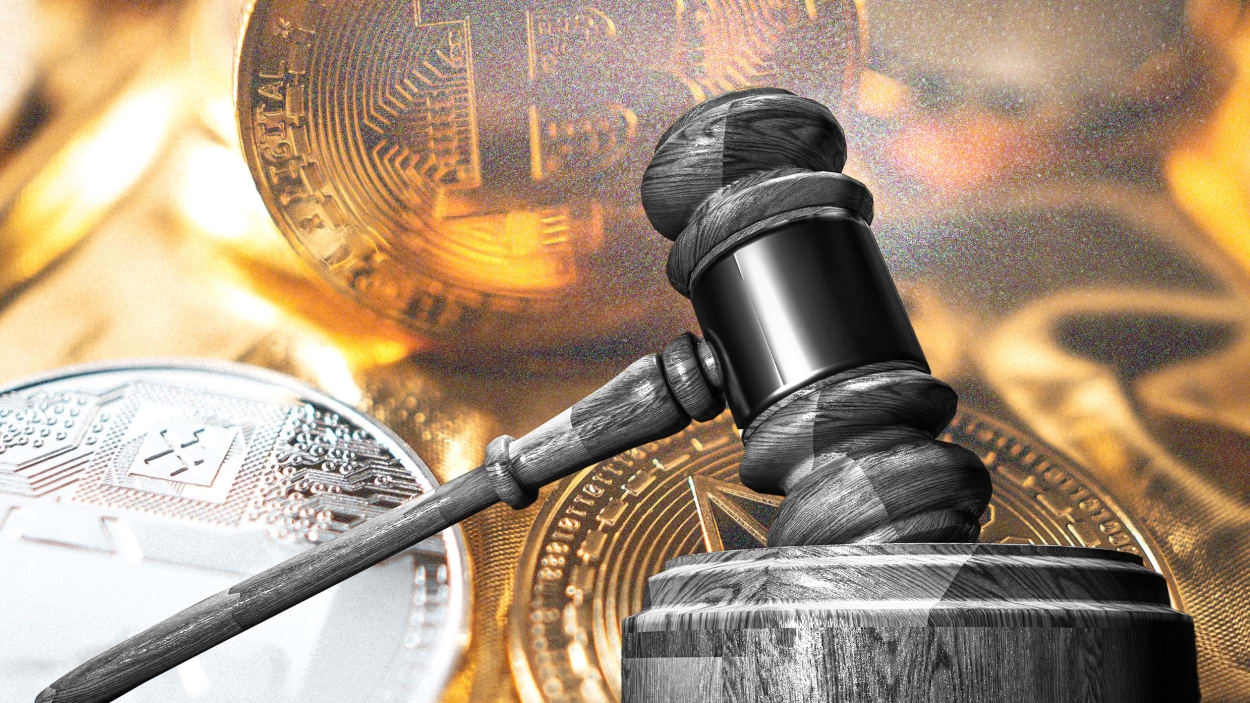SEC sues Coinbase for operating as an unregistered exchange, bringing a regulatory battle to its head
By Sam Becker
The federal government is suing one of the world’s largest crypto exchanges as a long-simmering legal battle appears to be reaching a crescendo.
The Securities and Exchange Commission (SEC) sued Coinbase on Tuesday, alleging that it was operating as an unregistered securities exchange. The SEC effectively claims that Coinbase broke the law by allowing users to buy and sell certain crypto assets on its platform without registering as a broker. The filing comes only a day after the SEC charged Binance—the world’s largest crypto exchange—for operating unregistered exchanges, and for misrepresenting its operations to investors and U.S. regulators, among other things.
“We allege that Coinbase, despite being subject to the securities laws, commingled and unlawfully offered exchange, broker-dealer, and clearinghouse functions,” said SEC Chair Gary Gensler in a statement. “In other parts of our securities markets, these functions are separate. Coinbase’s alleged failures deprive investors of critical protections, including rulebooks that prevent fraud and manipulation, proper disclosure, safeguards against conflicts of interest, and routine inspection by the SEC. Further, as we allege, Coinbase never registered its staking-as-a-service program as required by the securities laws, again depriving investors of critical disclosure and other protections.”
The SEC’s complaint, filed Tuesday in federal court in New York’s Southern District, also asks that Coinbase be “permanently restrained,” saying that it’s otherwise likely the company “will continue to engage in the acts, practices, transactions, and courses of business set forth” in the filing. The SEC’s charges center around 13 specific cryptocurrencies available on the Coinbase platform, which fit the bill of “crypto asset securities,” according to the agency, and thus fall under its regulatory purview. That list “includes, but is not limited to” cryptos trading under the tickers SOL, ADA, MATIC, FIL, SAND, AXS, CHZ, FLOW, ICP, NEAR, VGX, DASH, and NEXO.
In a statement provided to Fast Company, Coinbase says that it considers the SEC’s approach harmful and unfair, especially considering the lack of regulatory framework in the crypto industry.
“The SEC’s reliance on an enforcement-only approach in the absence of clear rules for the digital asset industry is hurting America’s economic competitiveness and companies like Coinbase that have a demonstrated commitment to compliance,” says Paul Grewal, Chief Legal Officer and General Counsel at Coinbase. “The solution is legislation that allows fair rules for the road to be developed transparently and applied equally, not litigation. In the meantime, we’ll continue to operate our business as usual.”
Coinbase’s share prices fell more than 20% in response to the news at the beginning of trading on Tuesday.
The charges levied at Coinbase are an escalation of a drawn-out legal back-and-forth between the company and the SEC. The crypto industry has largely lacked an overarching regulatory framework, and in some cases, has asked for guidance in avoiding the SEC’s ire. While a political and regulatory turf war has been happening between government regulators (the SEC and CFTC specifically) over which agency or agencies will ultimately have jurisdiction over the crypto space, the SEC has filed several lawsuits in an apparent effort to stake its regulatory claim over the industry.
If it’s successful, the effects could be wide-ranging. One industry expert previously told Fast Company that a successful SEC prosecution in one of its several lawsuits could “cripple centralized crypto exchanges,” while also leading to a potential collapse in value for numerous crypto assets.
Even so, the SEC’s actions confirm that it views at least some cryptocurrencies to be securities that are well within its legal purview, and it’s not willing to sit idly by while certain companies, in its eyes, break the law.
“You simply can’t ignore the rules because you don’t like them or because you’d prefer different ones: the consequences for the investing public are far too great,” said Gurbir S. Grewal, Director of the SEC’s Division of Enforcement, in the SEC’s statement.
“Coinbase was fully aware of the applicability of the federal securities laws to its business activities, but deliberately refused to follow them,” Grewal said. “While Coinbase’s calculated decisions may have allowed it to earn billions, it’s done so at the expense of investors by depriving them of the protections to which they are entitled. Today’s action seeks to hold Coinbase accountable for its choices.”
(37)



